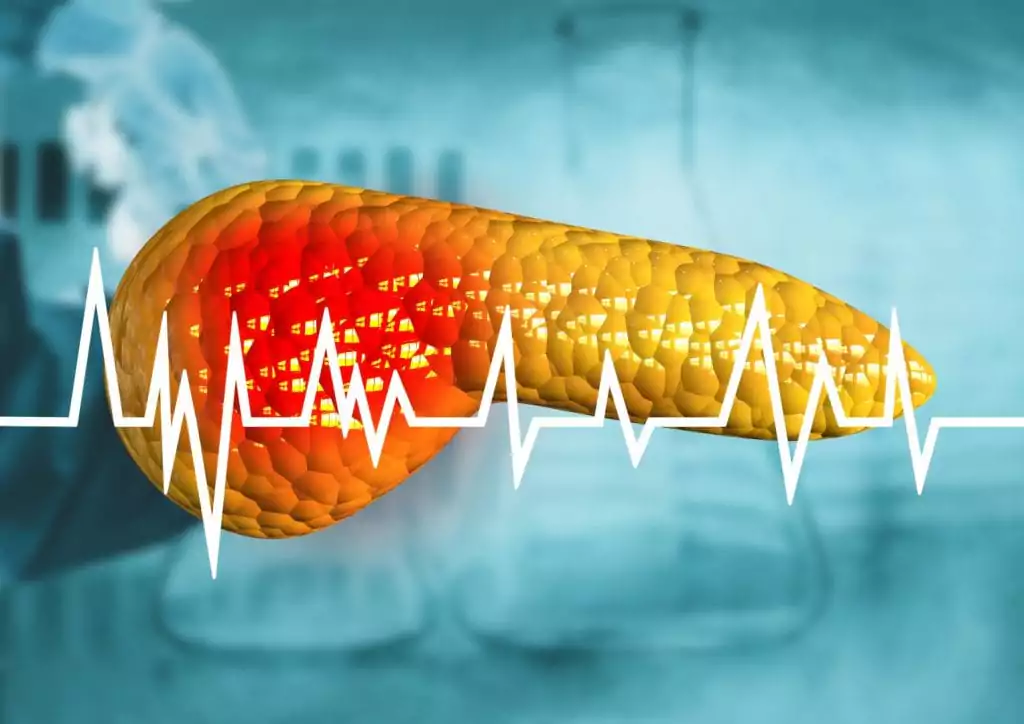
UP TO 40% OFF SITEWIDE






What Causes Diabetes? A Complete Guide


Diabetes is not one single disease. It includes several conditions, mainly Type 1, Type 2, and genetic forms, each with different causes. In general, diabetes develops due to genetics, environmental factors, or a combination of both. This guide reviews the specific causes of the various forms of diabetes.
Type 1 Diabetes and LADA
Type 1 diabetes occurs when the immune system mistakenly destroys the beta cells that produce insulin. The exact trigger is unknown, but the process often begins early in life.
-
Classic Type 1: Rapid autoimmune destruction, usually appearing in childhood.
-
Latent Autoimmune Diabetes (LADA or Type 1.5): A slower autoimmune form that develops in adulthood, often between ages 20 and 40.
Both forms require insulin because the body can no longer produce enough on its own.
MODY (Maturity-Onset Diabetes of the Young)
MODY is a rare, inherited form of diabetes caused by a single gene mutation. It is not linked to obesity or insulin resistance like Type 2 diabetes. It has six different known types; MODY-2 and MODY-3 are the most common.
Key features:
-
Usually diagnosed in teens or young adults
-
Blood sugar is mildly to moderately elevated
-
Strong family history across generations
-
Antibody tests are negative (unlike Type 1)
-
Many patients need little or no medication
Note: Determining your specific type is critical for treatment. If you suspect MODY, seek an evaluation by a diabetes specialist or endocrinologist.
Type 2 Diabetes
Type 2 diabetes is the most common form and develops from a combination of genetic risk and environmental stress on the body.
1. Genetics
Your genetic inheritance determines your baseline risk. Just as height is genetically determined, your beta cells are genetically programmed to produce a finite amount of insulin.
Risk increases with:
-
Family history
-
Certain ethnic backgrounds (African American, Hispanic/Latino, Native American, Asian, Pacific Islander)
2. Insulin Resistance (The Root Cause)
Insulin resistance happens when cells stop responding properly to insulin. The pancreas tries to compensate by producing more insulin, but over time, the beta cells fail.
Fat tissue plays a major role:
-
Cytokines: Stressed fat cells release inflammatory markers like interleukin and tumor necrosis factor-alpha. These cytokines can disable insulin receptors and are toxic to beta cells.
-
Fatty Acids: When fat cells are overloaded, fatty acids escape into the bloodstream. Like cytokines, they disable insulin receptors and reduce insulin production.
-
Hormonal Imbalance: Low levels of adiponectin (a hormone that reduces resistance) and rare deficiencies in leptin (the hormone that signals fullness) can contribute to the disease.
Progression usually follows this pattern:
-
Insulin resistance begins
-
Proinsulin levels rise, indicating the body is struggling to meet demand.
-
Prediabetes develops as mild blood sugar elevations occur.
-
Type 2 diabetes appears when beta cells fail
3. Obesity and Fat Distribution
Not just weight, but where fat is stored matters.
-
Abdominal (visceral) fatfat strongly increases insulin resistance
-
Physical inactivity worsens the cycle
-
Inflammation leads to fatigue, which promotes further inactivity
Signs of Insulin Resistance
If you have one or more of the following factors, you should be evaluated for insulin resistance or diabetes:
-
HDL Cholesterol: Below 50 mg/dL (women) or below 40 mg/dL (men).
-
Triglycerides: Levels above 150 mg/dL.
-
Blood Pressure: Elevated levels.
-
Acanthosis Nigricans: Darkening of the skin with a velvety texture, typically on the back of the neck or underarms.
-
Body Mass Index (BMI): Over 27 for Americans; over 23–24 for Asians and Indians.
-
Waist Circumference: Over 40 inches (men) or 35 inches (women).
-
Reproductive History: Polycystic Ovarian Syndrome (PCOS), history of gestational diabetes, or delivering a large baby.
Birth Weight Factors
Risk can begin before adulthood:
-
Low birth weight followed by adult obesity
-
Infants with normal weight but slow growth in the first 3 months face higher risks
-
High birth weight from maternal diabetes
-
Premature birth
These affect how the pancreas and metabolism develop.
Medications That Can Cause Diabetes
Some drugs can raise blood sugar by increasing insulin resistance or reducing insulin secretion. These include:
-
Steroids: (e.g., Prednisone) increase resistance and liver glucose production.
-
Antibiotics: (e.g., Moxifloxacin) may alter insulin secretion.
-
Antipsychotics: (e.g., Clozapine, Olanzapine, Risperidone) increase insulin resistance.
-
Beta-Blockers: (e.g., Atenolol, Metoprolol) can reduce insulin sensitivity.
-
Statins & Niacin: May increase risk through various mechanisms.
-
Diuretics: (e.g., Hydrochlorothiazide) can decrease insulin secretion and increase resistance.
-
Hormonal Contraceptives: Combination estrogen-progestin or progestin-only pills can increase resistance.
-
Immunosuppressants: (e.g., Cyclosporine, Tacrolimus) can reduce insulin secretion.
Do not stop medications without medical advice. Benefits often outweigh risks.
Summary
Diabetes has different causes depending on type:
-
Type 1: Autoimmune and not preventable
-
MODY: Genetic
-
Type 2: Driven by insulin resistance from genetics plus lifestyle factors
Type 2 diabetes is largely preventable. Understanding insulin resistance, body weight, and activity levels gives people real control over their risk.
Knowing the cause is the first step toward choosing the right treatment and protecting long-term health.
Author: Ahmet Ergin, MD, FACE, CDCES, ECNU About the author: Dr. Ergin operates a large diabetes practice mostly in Jupiter, FL yet can see diabetic patients across entire state of Florida via a unique telehealth platform which also allows him to track patient progress and be available at all times.
Written By Dr. Ahmet Ergin
465 total articles
Meet Dr. Ahmet Ergin, a highly skilled and dedicated endocrinologist with a passion for diabetes care. Dr. Ergin earned his medical degree with honors from Marmara University in Istanbul. He completed internal medicine residency and endocrinology fellowship at Cleveland Clinic. Dr. Ergin is board-certified in Internal Medicine, Endocrinology, Diabetes, and Metabolism due to his vast medical expertise. He's a certified diabetes educator, author of “The Ultimate Diabetes Book,” and founder of “the SugarMD YouTube channel.” Dr. Ergin offers exceptional diabetes care to his patients in Port Saint Lucie, FL, helping them manage effectively. For a closer look into his insights and experiences, connect with Dr. Ahmet Ergin on LinkedIn, Instagram, and YouTube.”
Disclaimer: These statements have not been evaluated by the Food and Drug Administration. Information on this website isn't intended to treat, cure or prevent any disease. Discuss with your doctor and do not self-treat.
Products















